Meat and fish are important nutrients for body development, but eating too much protein is not only harmful to the liver, heart, and kidneys, but also causes osteoporosis, increased blood cholesterol, and tumors. So how to eat properly?
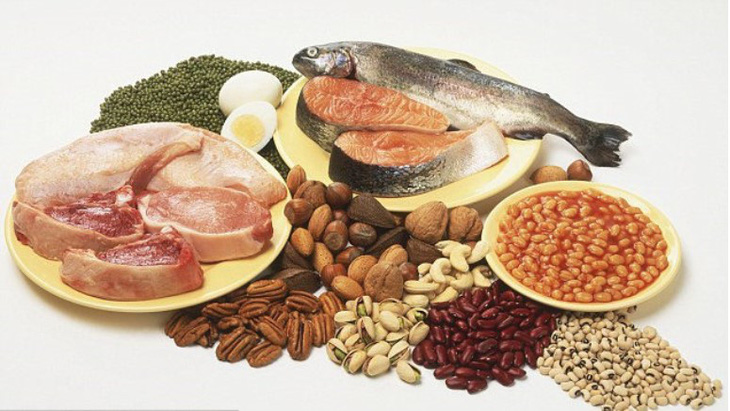
Sources of protein from animals and plants for the body - Illustration photo
Excess protein causes all kinds of diseases.
Associate Professor, Dr. Nguyen Thi Lam, former deputy director of the National Institute of Nutrition, said that meat and fish (protein) are important nutrients that are indispensable for the body's development.
But now we are at risk of eating too much protein. When consumed beyond the threshold, any form of protein is harmful to the body, especially animal protein.
When eating a lot of animal protein, a digestive process occurs in the body, easily producing the final products of nitrogen, urea, and uric acid. These substances increase uric acid in the blood, causing the pH to increase. At this time, the body must mobilize calcium from the bones to form calcium phosphate, which has an alkalizing effect and maintains the pH at a stable level.
Too much calcium is taken from the bones, causing osteoporosis. At the same time, when calcium is taken to balance the acid-base balance in the blood, it will be excreted through the kidneys. This process takes a long time, leading to calcium deposits in the kidneys.
For people with poor kidney function, the ability to excrete calcium is even worse, making it easier for it to deposit and cause kidney stones. Eating a lot of protein also increases uric acid, causing deposits in the joints, causing gout. It can also deposit in the nerves, causing nerve pain.
In particular, animal meat is low in fiber, so it is excreted slowly and incompletely. These substances remain in the intestines and will produce the final substances nitrogen, uric acid, and urea, which are agents that cause intestinal cancer.
Meat is not only high in protein but also high in saturated fat which increases the risk of heart disease.
Sharing the same view, Master Tran Anh Tuan, Hung Viet Oncology Hospital, said that protein is necessary for muscle and enzyme formation. Humans can only create protein for the body from protein provided by food, but the body cannot create protein on its own.
Therefore, meat is very necessary for the body, especially for children. But do not eat too much meat because meat has the following properties: reducing the amount of calcium in bones, acidifying the blood plasma, toxic (due to purines) to the cardiovascular system, liver and kidneys, increasing blood cholesterol...
The diet should be balanced and varied, including meat (including fish and shrimp), vegetables and fruits.
Eating a lot of meat produces a lot of waste products (urea, uric acid). Therefore, protein is a food that should be used sparingly, especially for pregnant women, people with heart disease, high blood pressure, gout, or people with kidney problems.
In addition, protein also contains purines that are toxic to the heart, liver, and kidneys. Horse meat, offal (animal organs), and game are rich in purines. Meat often contains fat, especially saturated fat. Meat is rich in cholesterol, which increases the risk of cardiovascular disease.

Meals should be balanced in nutrients - Illustration photo
Alkaline and acid imbalance causes damage to bones, kidneys...
The foods we take into our bodies are of two main types: alkaline and acidic. Acid-forming foods are not the sour foods we think of, but foods rich in animal protein such as meat, fish, cheese and grains. Alkaline-forming foods include fruits and vegetables, which can be sour such as lemon, star fruit, tamarind.
To be healthy, our diet needs to ensure acid-alkaline balance. An imbalance of acid and alkali will lead to excess acid or excess alkali, leading to disrupted absorption, causing many diseases in the body.
In particular, regularly eating a lot of meat and fish but not enough vegetables will cause excess acid to become chronic or increase forever. The body will no longer be able to neutralize it, leading to harmful consequences and many diseases: fatigue, lack of concentration, intestinal diseases, tooth decay, constipation, headaches, weak tendons and bones...
According to Dr. Le Thi Hai - former director of the Nutrition Consulting Center, National Institute of Nutrition, many children suffer from rickets because their parents give them too much protein.
The reason is that eating too much protein can cause metabolic acidosis, leading to increased calcium excretion in the urine. As a result, children still have rickets even though the amount of calcium taken in and absorbed is still at a normal level.
Analyzing the situation of eating a lot of meat and fish causing osteoporosis, rickets, etc., experts said that bones are where alkaline substances (calcium, magnesium, sodium, etc.) are stored.
Therefore, eating a lot of meat and fish means continuously increasing acidity, bones will release calcium and magnesium elements, gradually bones will lose minerals, especially in cases of high and long-term acidity will lead to osteoporosis with disorders in bone tissue structure.
Excess acidity also reduces muscle mass because to neutralize the excess acid, the kidneys withdraw excess amino acids from the muscles, so in the long run, the muscles will decrease. Furthermore, increased acidity also creates the risk of urinary stones, related to the excretion of calcium through the kidneys, creating the risk of kidney stone pain.
To have strong bones, it is necessary to pay attention to the combination of alkaline and acid in daily meals.
To reduce acidity, you should not eat too much meat, fish, eggs, sweets or drink alcohol. To increase alkalinity, you should eat lots of green vegetables, fruits, seafood, soybeans... and drink lots of milk. The best meal composition includes: 70% alkaline foods (vegetables, fruits), 30% acid foods (meat, fish)...
Healthy = balance of animal and plant protein
According to doctors, it is impossible not to eat meat, especially for young children and pregnant women. The amount of protein needed by the body varies depending on age and physical activity. Protein needs are high in children, pregnant women and breastfeeding women.
In some normal physiological conditions, the daily meat requirement is: Children 10g/year of age; pregnant and lactating women 100 - 150g; adults 100g and the elderly 60 - 100g. Fish should be included in the menu 2 - 3 times a week, reducing fatty meat.
If you want to increase protein in your diet and minimize the above harmful effects, you should choose vegetable protein. Previously, the ratio of animal and vegetable protein supplements for adults was 50/50, but now that nutritional science has developed, people believe that animal protein causes many disadvantages, so the appropriate ratio is 30/70.
To assess whether the amount of protein is appropriate, it is necessary to look at its ratio with other groups of substances (starch, fat) in the diet. Accordingly, the ratio of groups of substances should be 12 - 15% protein, 20 - 25% fat, 60 - 70% carbohydrates.
Source: https://tuoitre.vn/an-qua-nhieu-thit-ca-de-sinh-benh-tai-sao-20241024074840949.htm



![[Photo] Looking back at the impressive moments of the Vietnamese rescue team in Myanmar](https://vstatic.vietnam.vn/vietnam/resource/IMAGE/2025/4/11/5623ca902a934e19b604c718265249d0)


![[Photo] "Beauties" participate in the parade rehearsal at Bien Hoa airport](https://vstatic.vietnam.vn/vietnam/resource/IMAGE/2025/4/11/155502af3384431e918de0e2e585d13a)





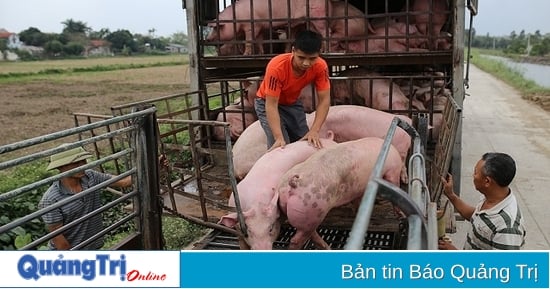






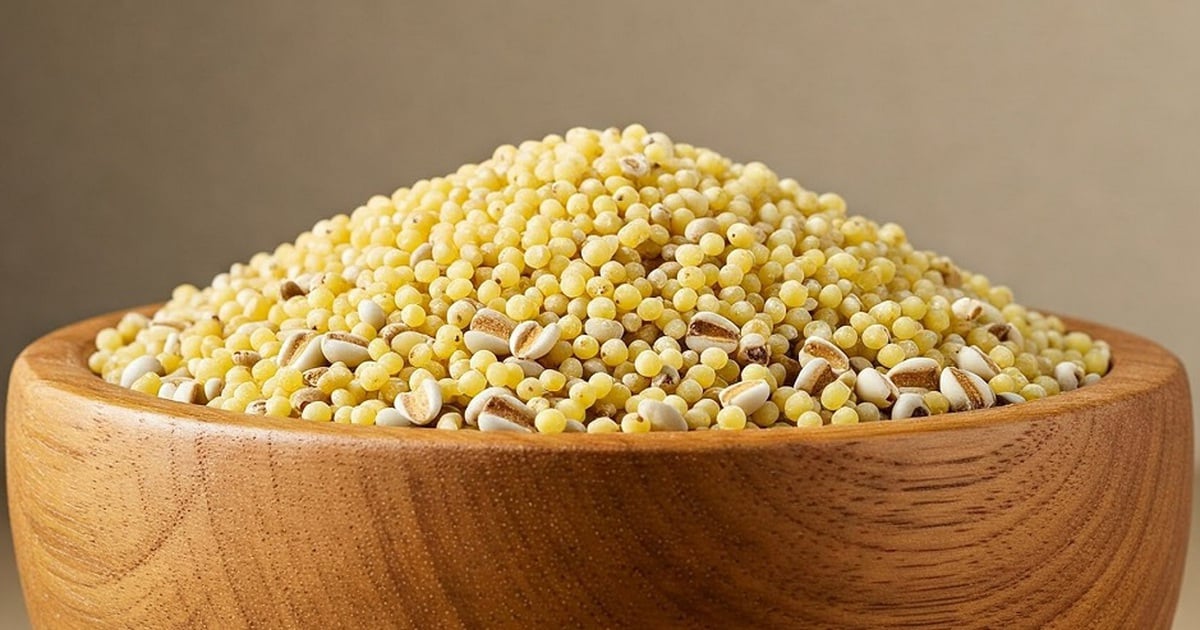
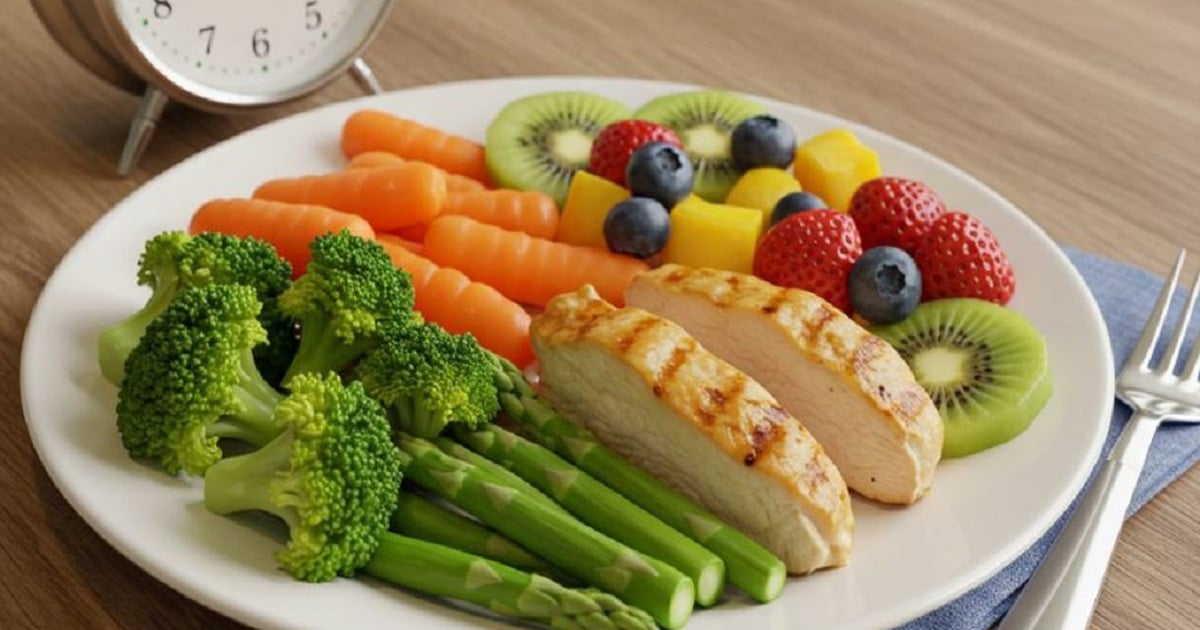

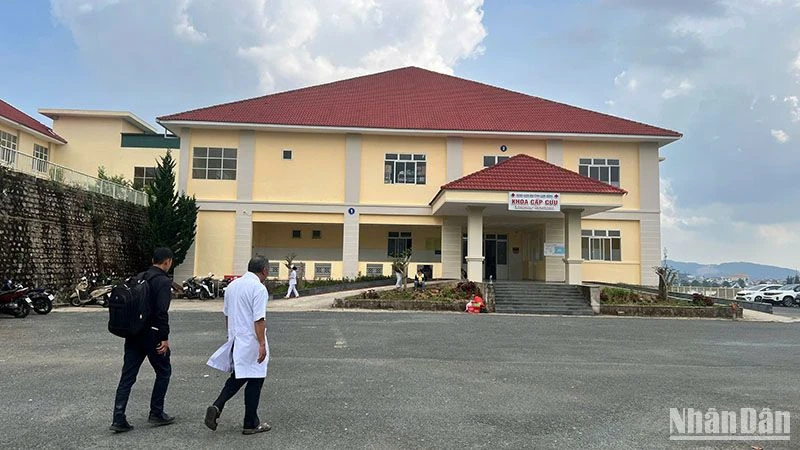


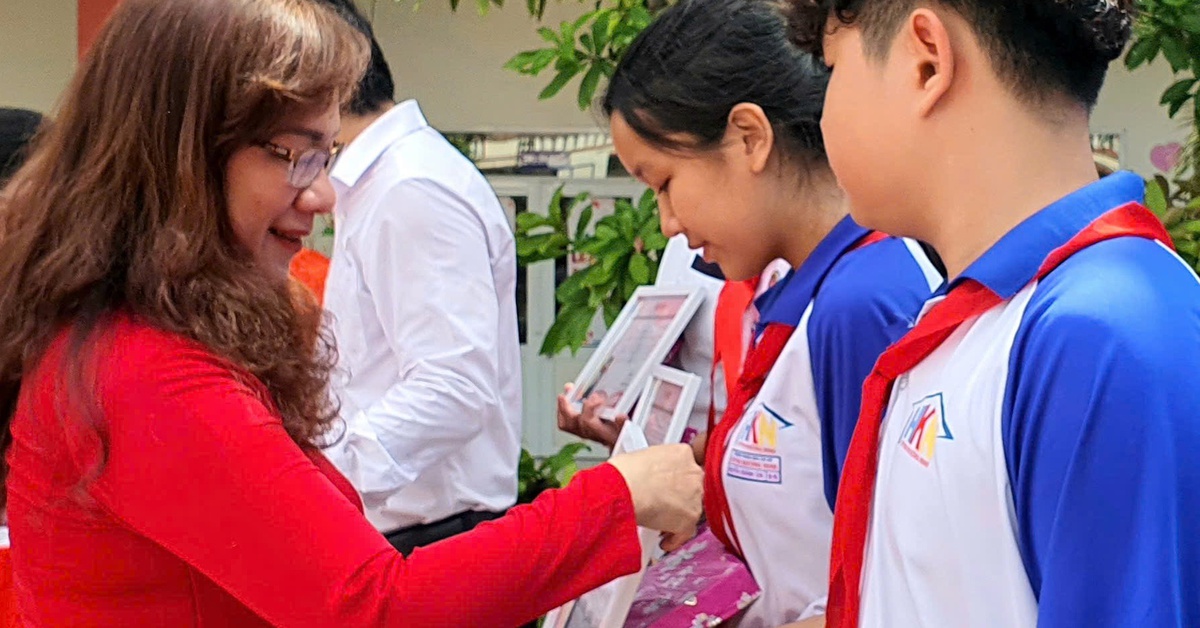
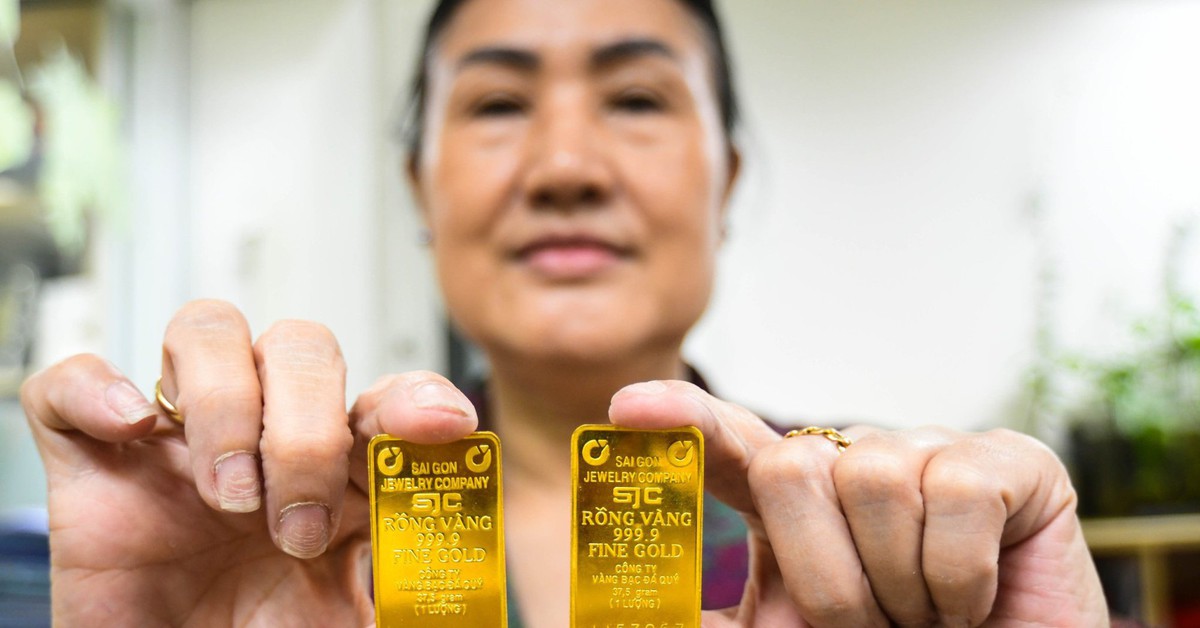
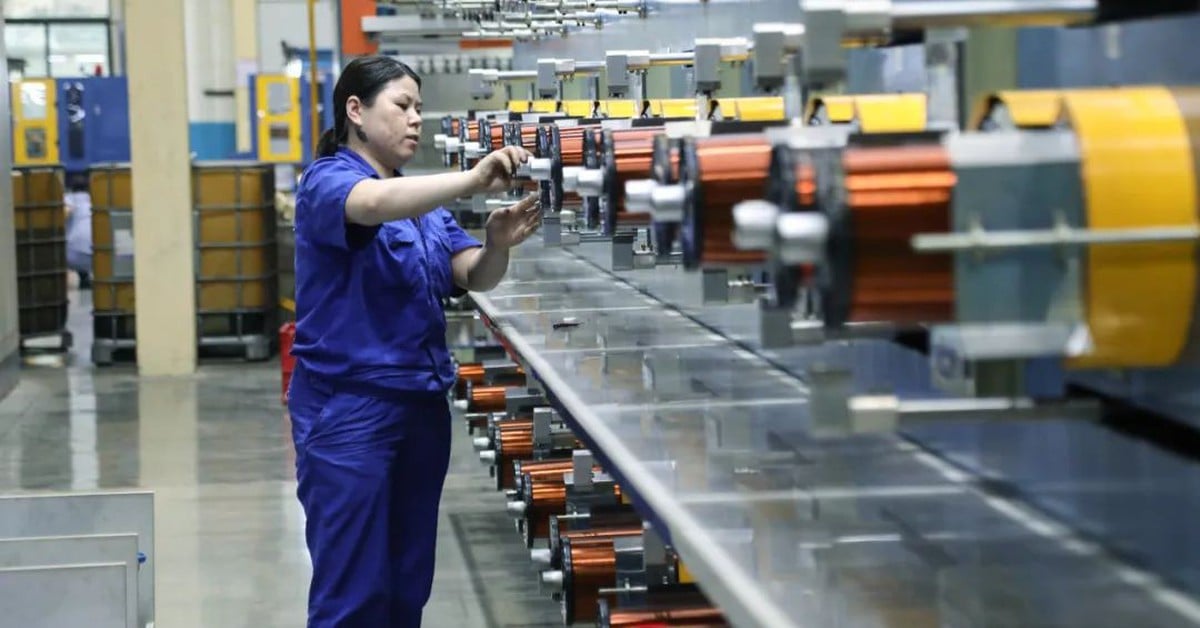

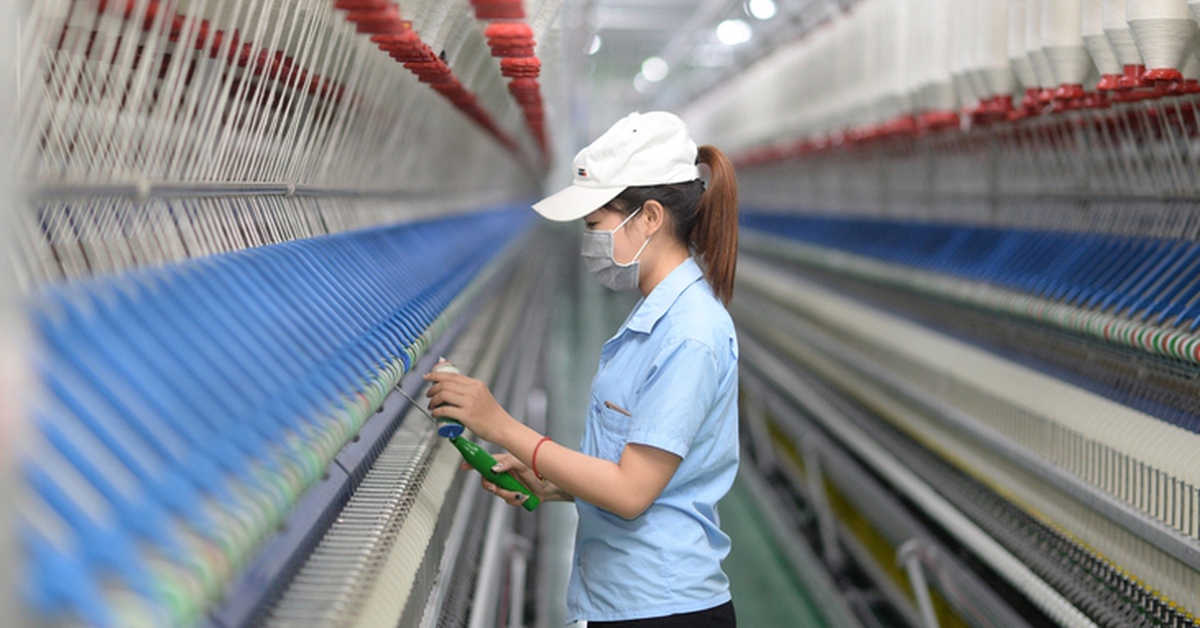


![[Photo] Summary of parade practice in preparation for the April 30th celebration](https://vstatic.vietnam.vn/vietnam/resource/IMAGE/2025/4/11/78cfee0f2cc045b387ff1a4362b5950f)





























































Comment (0)